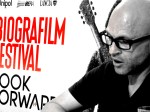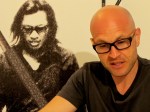August 4, 2017
Everyone is talking about digital transformation: the news are filled with data and stats around massive investments in digital technology and in the need to transform businesses.
The IDC report 2017 estimates that worldwide spending on digital transformation technologies will grow to more than $2.1 trillion in 2019, while a Forrester study says that 57% of organisations say that implementing key digital technologies is critical to enabling their digital business. Nevertheless a Sloan Review Survey shows that respondents rated “current IT systems” as the third biggest obstacle to achieving digital transformation.
The relation between digital, IT systems, and digital transformation is still blurred in most cases. Today digital transformation is far too often confused with Digitalization or with Digitization with a strong focus on technologies or platform. In many cases, organisations still believe that digital transformation is achieved by implementing a single platform that could magically transform the whole organisation.
Unfortunately that is wrong and it’s misleading.
read more »
Posted in CX, Digital Transformation, Legoview, Organisations, Slides |
Leave a Comment »
February 20, 2017
 I have been reading a lot about Millennials, this new breed stemming from the digital age.
I have been reading a lot about Millennials, this new breed stemming from the digital age.
Were these Millennials so much different?
I, as a GenX, could easily relate to what I was reading and did not realise the real gap until I had the opportunity to directly compare the ways of thinking, the value systems, attitudes, and mental models, of Millennials and Baby Boomers.
The opportunity came through some workshops I facilitated to explore how customers felt about brands and their experience as consumer and shopper.
I decided to run the workshop using Lego Serious Play, a facilitation method that asks participants to build metaphorical models with Lego bricks to answer specific challenges and questions.
The method is based on narratives and storytelling, and participants are the only one who hold the interpretative keys to decode the metaphors and stories kept in their model. After building their model to answer the question, participants share their stories and their models with everyone, explaining the meaning of their models and sharing their views and perspectives on the issues I was investigating.
read more »
Posted in cocreation, CX, LEGO SERIOUS PLAY, Legoview, Methodology, Organisations |
3 Comments »
April 13, 2014

- Exploring how Privacy, UX and co-creation are related to LEGO Serious Play
LEGO Serious Play, privacy, data quality, co-creation, and UX. It seems a random list of topics, yet there’s a fil rouge that links them.
The impact of technologies has had a deep effect on how people and organisations interact: old-fashioned words, which were popular only few years ago, such as ubiquitous computing, or always on, are now everyday’s reality, making interaction and communication easier, quicker, multimodal.
Technologies and the web have produced new ways to communicate and have put people closer, offering new ways to interact. In a word, we are living in a world of conversations, where everything is conversation, as predicted in 1999 by the Cluetrain Manifesto. People interact more, users interact directly with companies, the web empowers consumers to engage in conversations with people and organisations we had no idea how to reach only 15 years ago.
read more »
Posted in cocreation, LEGO SERIOUS PLAY, Legoview, Organisations |
3 Comments »
July 23, 2013
Summertime has arrived and as it should be, it’s time for new readings and a little bit of relax. Therefore, activities will slightly slow down on the blog. As few might have noticed, some of the Lego interviews I did recently have been published as an exclusive on the London Progressive Journal and therefore, they do not appear here. So, here you are the Links to the articles and the videos that you might have missed 🙂
“Is there any truth in this model?” I ask.
“Well, what it’s truth?” he says. “The truth is that this block here is red”, he says showing me a red brick. “We can say that it is true that this is red but that’s on a very simple kind of level. You can get into it more specifically and more philosophically about what is red. Many different people in the world may describe this as ‘not red’ because this is red as well” he says pointing at another transparent red brick. “But it’s a different kind of red” he adds. “So I think it’s important to really be aware and to actually take time: if you want to learn about information, and possibly truth, you need time to communicate with a lot of different people with different perspectives. Then you might get close to the truth and get some interesting responses too”. [J.P. Tremblay]
read more »
Posted in Activism, Creativity Project, Journalism, Legoview |
1 Comment »
July 4, 2013

Milena Kaneva
Milena Kaneva is a smiling and bright person, a filmmaker and film director who in 2006 produced one of the most inspiring films about Burma, Total denial.
The main characters of her film are activists Ka Hsaw Wa and his wife, and they wanted to make the difference by documenting how Karen villagers had been treated in Burma. The case came from the building of a pipeline that Unocal, a former oil company, that was built next to the Andaman sea to connect Burma to Thailand: Karen villagers ‘who stood in the way to progress’ – to say it with the oil company’s managers words – have paid their opposition with all sort of human-right violations.
Ka Hsaw Wa engaged and led an 8 years lawsuit agains Unocal and 15 Karen vilagers sued Unocal for human-right abuses with the support of Burmese military.
This is an inspiring story, the story of the victory of Ka Hsaw Wa and the victory of Karen vilagers who have seen recognised their rights in an US court.
Milena has followed this story for 5 years, between 2000 – 2005. Milena’s career yet is not that of a ‘classic’ filmmaker or journalist: she started as an actress, but then her interest towards society and stories that can inspire people has taken the lead and, inspired by the Nobel Peace laureate Aung San Suu Kyi and lending the title of her book, she funded the Free from Fear Foundation. The foundation’s aim – as stated in the website ‘is to use the power of film, free media and other initiatives to educate and empower people about human rights and to denounce human rights violations everywhere. By telling the truth we remove the veil of fear.’
Something Milena already did and keeps doing, lending herself and her work to the cause of Burmese people and to those who are oppressed.
When She cames in, she is curious and excited – she immediately loved the concept of a LEGO based interview, and the whole interview had been a relaxed engaging and inspiring talk.
read more »
Posted in Activism, Creativity Project, Journalism, Legoview |
Leave a Comment »
June 28, 2013

Jean-Philippe Tremblay
Jean-Philippe Tremblay is a Director/Writer, Producer and filmmaker. His latest work, Shadows of Liberty, costed him more than 5 years of work, and it has been presented in June at the Biografilm Festival and here is where I meet him.
Inspired by Ben Bagdikian‘s book “The New Media Monopoly” that in 1984 reported how media is controlled by only 5 conglomerate corporations, Shadows of Liberty is a true and sincere ode to freedom of information, where journalists tell their stories and present the difficulties they face to reveal the truth at any cost, going against the establishment. An inspiring documentary that shows and demonstrates that even today, regardless the corruption and the the power of corporations and governments that do their best – or their worst – to manipulate information and craft consent, there are still brave and hard-working individuals who investigate, research and reveal the facts and the truth. My interview with Jean-Philippe Tremblay could not be anything but about information. Yet, before getting into the real question, I also wanted to learn about what being a filmmaker means to him. And this is how we start.
What is filmmaking? I ask.
He immediately engages with the bricks with an open mind, like anyone who enjoys exploring and experimenting, he is one of those individuals who communicate life and experiences. He stares at the bricks and then he starts telling me the story.
read more »
Posted in Activism, Creativity Project, Journalism, Legoview |
1 Comment »
June 20, 2013

Slavko Martinov
‘I am not scared… I have a beer!’ he says as soon as we meet. He is surprised and enthusiast as he sees the bricks. He is Slavko Martinov, filmmaker who filmed and produced Propaganda [See previous Post]. I explain him that the method is not a psychoanalytic session, but a search for truth ‘Which is typically subjective’ he adds.
As a filmmaker who has been working hard on the issues of propaganda and information, my questions were simple in their constructions, to let Slavko’s views and ideas to emerge freely: What is Information? I ask.
He stays silent for a while and starts playing with the bricks. He turns all the bricks upside down.

Deconstructing information
All separated. All detached. All on the table. Then, when he’s finished, he starts talking:
‘All these pieces are information… If you ask me what information is, it really makes me think that if everything I have turned the other way was information as it’s presented, my natural instinct is to turn everything over and examine it from underneath, or sideways or back to front, or upside down… That’s how I get to the truth. I just don’t accept information as it’s given to me. So, if this is me, my idea…’ and he pics the human figure and shows me the flower on the head ‘this little flowering of an idea or the bloom of an idea is that to question everything, upside down… even if I was built up and passed of some information I have to ask, according to who, where the source come from, who benefits and why I have been given that structure of information… I would completely take it apart to examine it…’
read more »
Posted in Activism, Creativity Project, Journalism, Legoview |
2 Comments »
June 14, 2013

Slavko Martinov
Slavko Martinov is a New Zealander film-maker who created an international case around his latest work, Propaganda: a documentary which presents Western society through the critical eyes of an anonymous North Korean professor. The professor is actually Mr Eugene Chang, a South Korean expat whose life has been completely changed by the attentions the movie has received by South Korean authorities, who accused Eugene to be a North Korean spy. The accusations lead to Eugene’s marginalisation and repudiation from the South Korean community in Christchurch, New Zeland, where he lives and where the documentary has been filmed and directed by Slavko Martinov and Mike Kelland. The idea of making a case has been a brilliant intuition, yet consequences went far beyond any expectation: the film mysteriously appeared on YouTube on 18th July 2012 as a documentary provided by North Korean defectors, and it circulated as anti-Western propaganda material originating from North Korea, before the truth around the film has been revealed.
During a round table at Biografilm Festival, Slavko admits that he would never imagined that his movie would have such an impact on members of his crew’s life, he expected consequences, but on himself. He worked with legal experts and was ready to face problems, but despite the public efforts Martinov and Kelland have been doing to clear Eugene name, the three of them are officially considered North Korean agent and Eugene’s life has been tuned upside down.
read more »
Posted in Activism, Creativity Project, Journalism, Legoview |
2 Comments »
May 24, 2013

Architect Gianni Cagnazzo
Gianni Cagnazzo is an Architect. But that’s not enough to fully catch his polyhedric and enthusiastic attitude towards his job and his passions. Gianni Cagnazzo is president of IEM (Indoor Environment Management) and ANAB (National Association of Bio-ecological Architecture), member of the International Academy of Colour, he is professor in bio-ecological architecture, colour design and humanisation of the built space, he gives lectures at various institutes, including ANAB IBN (Institut fur Baubiologie und Oekologie – Neuberern), UNITRE, University of Turin… Colour is his passion, therefore the question was certainly due: What is colour?
He knows how my kind of interviews work and he starts building. When he is done, he explains me his model.
read more »
Posted in Architecture, Creativity Project, Journalism, Legoview |
Leave a Comment »
May 3, 2013

Francesca Valan – Industrial Designer and Colour expert
Francesca Valan, an Italian industrial designer, is internationally considered one of the most passionate and experienced colour experts. One of the key problems, when it comes to colour and architecture, is that colour is something that architects add at the end of the design. She strongly disagrees on such an approach and after telling us, with the bricks, of course, what is colour, I asked her about Architecture. What is Architecture?
She stares at the bricks for a while and then she starts building. When she has finished, she looks at me

F. Valan – Model 1 ~ Architecture
and at the bricks and recalling the question – what is Architecture? – she simply says: ‘Rules. Geometric rules. Axes. Vertical and horizontal axes. But the main thing, it’s depletion of chromatic and material elements in favour of formal elements.’
I look at her model: it’s an interesting one, as there are a number of elements and they are all detached. ‘What are these elements you have built here?’ I ask her.
‘Volumes. These are volumes and not architecture. The yellow one, for instance, it’s a solid build following formal criteria I do not know, with improper chromatic criterion. Because colour in architecture is always impoverished. It’s kind of too obvious, if there’s any logic, this is a trivialising one.’
read more »
Posted in Architecture, Journalism, Legoview |
Leave a Comment »


 I have been reading a lot about Millennials, this new breed stemming from the digital age.
I have been reading a lot about Millennials, this new breed stemming from the digital age.








